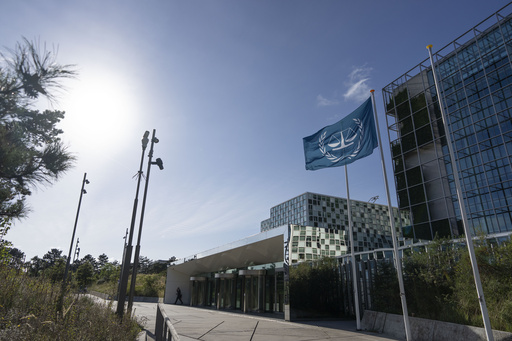
ROME — Italian authorities have captured a Libyan warlord under an arrest warrant issued by the International Criminal Court (ICC), but a local court has chosen not to endorse the arrest, ultimately resulting in his return to Libya, according to reports from the state-owned RAI television.
The individual in question, Ossama Anjiem, also known as Ossama al-Masri, leads the Tripoli division of the Reform and Rehabilitation Institution, a controversial network of detention centers overseen by the government-supported Special Defense Force (SDF). This military police unit tackles significant crimes such as kidnappings, murders, and illegal migration.
The SDF, like many other militia groups operating in western Libya, has been accused of committing severe violations during the civil conflict that ensued after the demise of long-standing Libyan ruler Moammar Gadhafi in 2011. Recently, the chief prosecutor of the ICC revealed that arrest warrants were issued for several suspected criminal activities in Libya, extending beyond the civil war to alleged abuses occurring within detention facilities.
Reports from Italian publications Avvenire and La Stampa indicated that al-Masri was apprehended in Turin on a Sunday while attending a Juventus-Milan soccer match the previous night, following the warrant issued by the ICC in The Hague. The Italian Justice Ministry stated that it was assessing the court’s request for his arrest, but later updates confirmed that the Turin court had opted not to back the arrest, leading to al-Masri’s release and immediate return to Libya.
The Justice Ministry has not provided immediate comments regarding the decision. Al-Masri’s capture had placed Italy in a challenging position, given its strong relations with Libya’s internationally recognized government and its vested energy interests in the region. A trial in The Hague could raise uncomfortable questions about Italy’s migration policies, particularly its support for the Libyan coast guard, which it has backed financially to deter migrant departures.
Human rights organizations have reported serious abuses taking place in Libyan detention centers where migrants are held and have accused Italy of complicity in the mistreatment of these individuals. Nello Scavo, an Italian journalist known for his coverage of atrocities against migrants and who broke the story regarding al-Masri’s arrest, expressed his disappointment at the release. He argued that this represents a failure of Italy to meet its international obligations to surrender him to the ICC.
Italy, a founding member of the ICC, hosted the 1998 conference that laid the groundwork for its establishment. Scavo highlighted the implications of al-Masri’s release, suggesting that if individuals sought by international authorities can evade justice through legal loopholes in a G7 nation, then the concepts of law and global justice lose their significance, negatively impacting the most vulnerable communities and democratic institutions.
Amnesty International previously urged Italy to quickly hand over al-Masri to the ICC, noting the “horrific violations” occurring within Libyan prisons, including torture and forced disappearances, taking place with total impunity. The organization stressed that with little hope for accountability in Libya for powerful militia commanders, it is crucial for Italy and other members of the international community to pursue justice for breaches of international law.
The ICC has issued several new warrants against Libyan nationals in the past year, stemming from its investigation that began in 2011 at the request of the U.N. Security Council. A recent report indicated that the court anticipates issuing new warrants in 2025 related to crimes in detention facilities. Currently, the ICC has 11 open arrest warrants, with seven individuals still at large. Al-Masri’s name, however, does not appear on any public list of warrants.
Libya has faced instability for years, with competing governments in the east and west backed by various armed factions and foreign powers. The current governmental framework is characterized by Abdul-Hami Dbeibah’s administration in Tripoli and Prime Minister Ossama Hammad in the east. Western Libya remains under the control of lawless militias cooperating with Dbeibah’s regime, while the eastern and southern regions are dominated by the forces of influential military leader Khalifa Hifter.
Mediterranea Saving Humans, a humanitarian organization that has condemned the abuses in Libyan detention centers, noted that al-Masri’s arrest followed years of reports and testimonies from victims submitted to the ICC. The organization has frequently criticized Italy for its financial support of Libya’s coast guard. They remarked on al-Masri’s attempt to blend in while in Italy, stating that traffickers feel secure in such environments, and suggested that the Italian authorities would prefer this situation to remain undisclosed, although the news broke due to investigative reporting by journalist Scavo.

